Today the first RailNetEurope Summit on Capacity Regulation brought together more than 360 leaders, experts, and stakeholders in Vienna and online to discuss the future of European rail. Hosted by RNE President Paul Mazataud (SNCF Réseau) and moderated by RNE Secretary General Joachim Kroll, the event focused on how the draft Capacity Regulation will impact the rail infrastructure business including digitalisation.
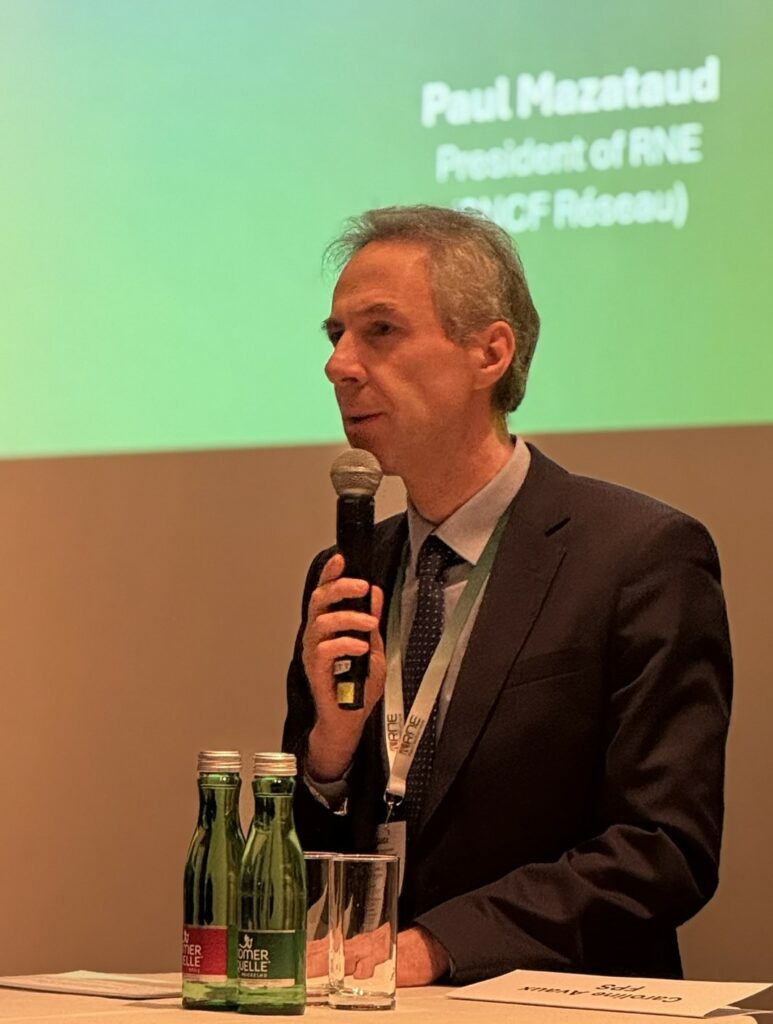
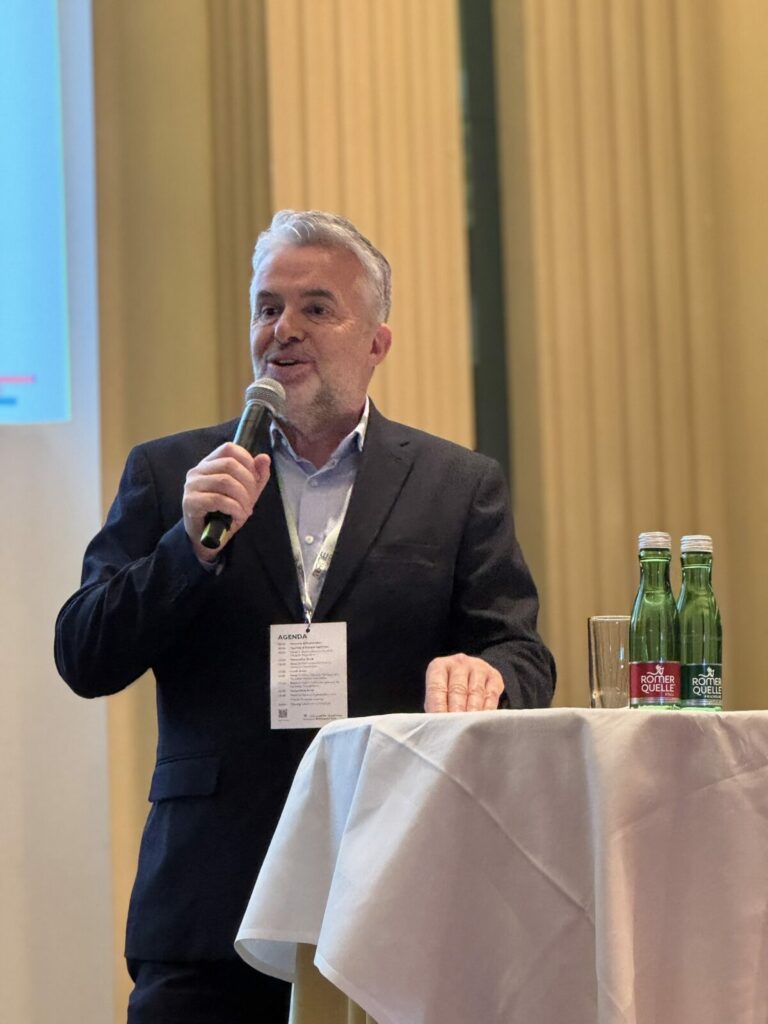
While emphasising the necessity of improving Capacity Management, Paul Mazataud described this challenge as ‘indispensable’. He stated, “RNE is actively transforming itself into the Network Coordinator. This is why we initiated and invited you to this event, and we look forward hearing your perspective and insights.”
A notable feature of the event was a live poll introduced during each panel discussion, enabling participants to provide real-time feedback and insights on key topics. This interactive element fostered a dynamic exchange of ideas and ensured that every attendee had the chance to contribute (see polling questions and results in the Summit Presentation).
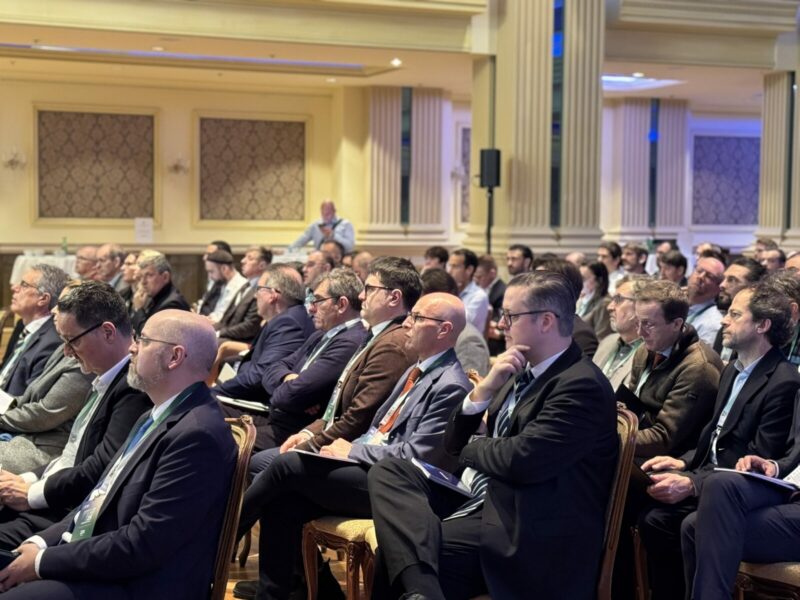
Participants also had the opportunity to explore the RNE Path Coordination System (PCS) and Train Information System (TIS). RNE’s experts hosted information stands, offering the unique opportunity to answer questions on the latest features and benefits in person.
A Day of Dialogue and Innovation
The summit began with a warm welcome and keynote speeches from prominent figures, including Sandro Santamato (European Commission), Johann Pluy (ÖBB Infra), and Alain Quinet (PRIME). Their messages underscored the importance of collaboration and innovation in shaping a sustainable and efficient European railway system.
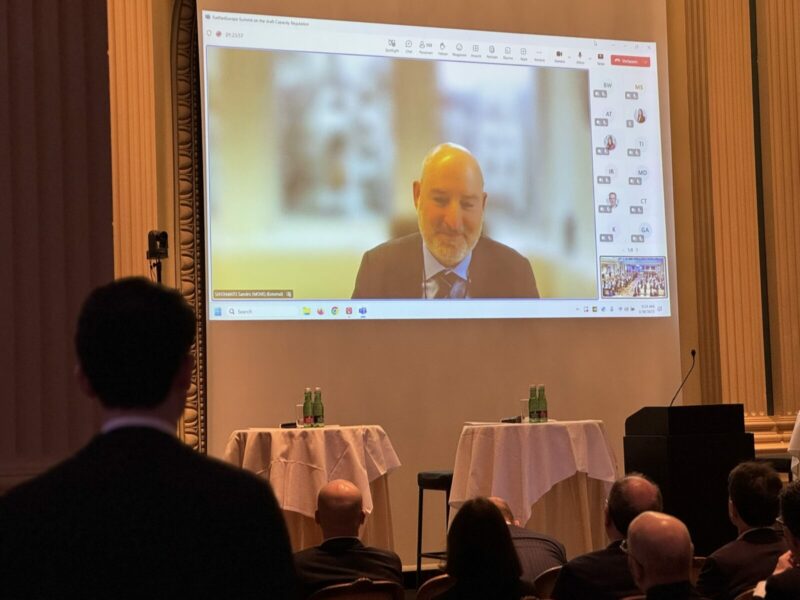
“Rail is back at the top of the policy agenda because we’ve learned our lesson from past crisis: strategic preparations are key.”
Sandro Santamato, Head of Unit C3 – Single European Rail Area,
Directorate-General Mobility and Transport, European Commission
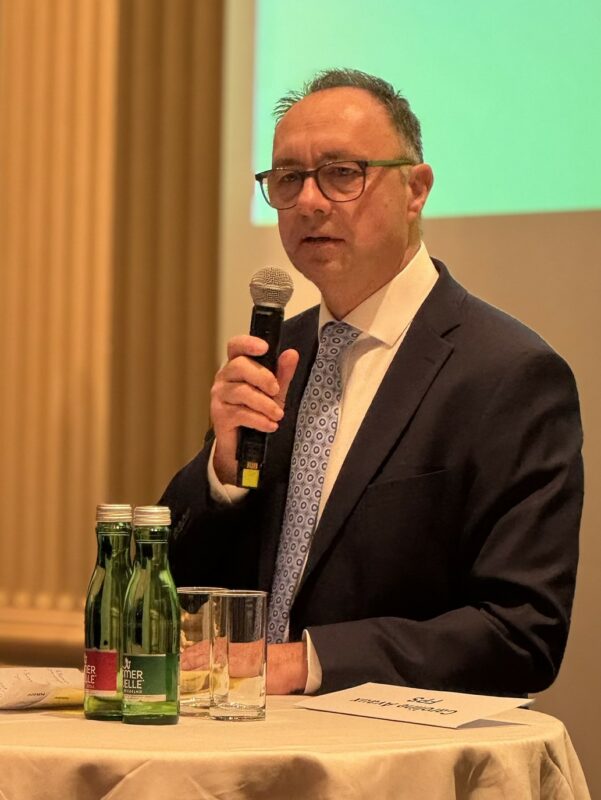
“To gain acceptance, we must prepare market participants; otherwise, we will face resistance”
Johann Pluy, Member of the Board of Management, ÖBB Infra
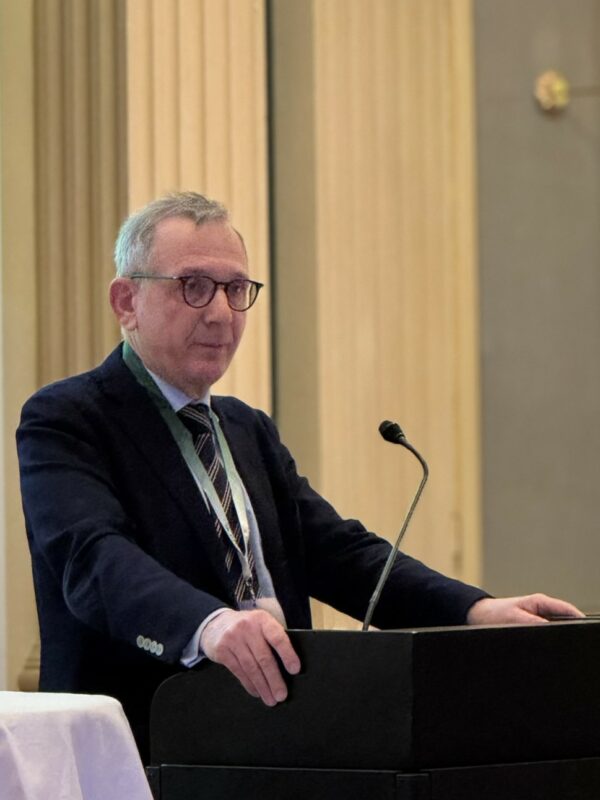
“I would like to stress that the Capacity Regulation can act as a game changer. This is a huge opportunity to promote trans-European transport, and I believe PRIME and RNE are two major, complementary players.”
Alain Quinet, Co-Chair, Platform of Rail Infrastructure Managers (PRIME)
Panel Highlights
Panel 1: Sector Views on the Draft Capacity Regulation
Moderated by Monika Heiming (EIM) and Christopher Maier (CER), this panel featured a diverse group of stakeholders who shared their perspectives on the regulation’s potential to reshape European rail.
Tilly Metz (Member of the European Parliament), Maciej Gladyga (ERFA), Elmer van Buuren (European Sleeper), Clemens Först (ÖBB Rail Cargo Group), Sven Gjeruldsen (Bane Nor), and Caroline Avaux (FPS) discussed the regulation’s implications for legislative processes, operational challenges, and future opportunities.
As a Member of the European Parliament, Tilly Metz highlighted the necessity of innovation regarding governance, particularly highlighting the importance of checks and balances for healthy governance.
Maciej Gladyga emphasised the importance of dialogue with various stakeholders, stating: “We don’t need to convince the convinced, we need to convince the counterpart in this discussion.”
Panel 2: RNE’s Potential Role as Network Coordinator
Led by Elisabeth Hochhold (RNE), this discussion centred on the potential role of RNE as a Network Coordinator. The draft Capacity Regulation aims to ensure the optimal use of available capacity through intensified coordination and cooperation, introducing structures like the European Network of Infrastructure Managers (ENIM) and the Network Coordinator.
Panellists Alfred Pitnik (RNE Vice President, PRIME Sub-Group Leader), Linda Thulin (RNE Vice President, PRIME Sub-Group Leader), Edgar Schenk (Forum Train Europe), and Christian Wolf (Federal Network Agency) provided firsthand industrial insights and views while discussing RNE’s ongoing preparations as the Network Coordinator.
Alfred Pitnik, who is deeply involved in the Network Coordinator preparations, explained why RNE is already preparing for this role, even though the Regulation has not been adopted. He stated: “In order to meet the tight timelines set by the European Commission, we need to be up and ready to fulfil this role successfully.”
Representing the Railway Undertakings (RUs), Edgar Schenk, when asked about the role of stakeholder consultations, emphasised the goal of gathering input, to be heard and most importantly, being taken seriously.
The session concluded with questions from the audience, leading to a lively discussion among representatives of various stakeholders.
Panel 3: RNE’s Capacity Management for Better Market Orientation
Moderated by Guus de Mol (RNE Vice President, ProRail), this panel explored how RNE’s Timetable Redesign (TTR) programme is fostering a market-oriented approach to capacity management, despite the absence of a supporting legal framework. Discussions also highlighted the sector’s vision of a European, digital, and flexible capacity management process.
Panellists Robert Groiss (METRANS Group, FTE), Klaus Garstenauer (ÖBB Personenverkehr AG), Weronika Karbowiak (PKP Polskie Linie Kolejowe S.A.), Gustav Sjöblom (Transportstyrelsen), and Thomas Spiegel (Austrian Ministry of Climate Action) shared their views and engaged in discussions with the audience.
Robert Groiss started the discussion with the remark: “We are here for the common goal – we want to bring rail forward.”
Offering insights from the Ministry’s perspective, Thomas Spiegel stressed the importance of international coordination, especially for smaller countries like Austria, which heavily rely on cooperation with neighbouring countries.
Panel 4: RNE’s Traffic Management for Seamless Coordination
Stefano Castro (RNE Vice President, RFI) led this panel, which examined the European Traffic Management Network (ETMN) concept. Discussions focused on enhancing coordination between traffic control centres, improving European train run management, and advancing telematics-driven communication.
Peter Šišolak (RNE) opened the panel by explaining the Estimated Time of Arrival (ETA), its purpose and the current progress. He was followed by Simona Garbuglia (RFI), who gave insights into the Translate for Rail tool. The other panellists Erik Van Der Linden (ProRail), Bjarne Holmgren (Trafikverket) and Ralf-Charley Schultze (UIRR) offered diverse perspectives and future outlooks for the European rail traffic management.
Bridging Panels 3 and 4, Schultze stated: “If Capacity Management is the planning part, Traffic Management is the execution part.”
Panel 5: Railway Digitalisation for a Flexible European Process
Moderated by Harald Reisinger (RNE), the final panel of the day addressed the transformative role of digitalisation in the rail sector. Reisinger presented the RNE IT Strategy, detailing how systems like TIS, PCS, ECMT, TCR, RIS, CCS, and RINF interconnect to create a seamless digital framework.
Panellists Yann Seimandi (European Commission), Christoph Carr (ERA), Frédéric Hénon (UIC), Michel Geubelle (RNE Vice President, Infrabel), and Gilles Peterhans (UIP) discussed the shift from national, manual processes to a European, digital, and flexible framework.
“As IT, we are not in the driver’s seat, we are here to implement what the sector needs,” Michel Geubelle stated and concluded his speech with the pledge to think more broadly.
Driving the Future of Rail
In the concluding round, Joachim Kroll expressed gratitude to all panel moderators and invited them to share their key takeaways. Christopher Maier described his panel as a strong reflection of the ongoing negotiations, while Elisabeth Hochhold emphasised the valuable insights, she gained regarding expectations from RNE and stakeholders. The overarching consensus was clear: the industry must prioritise harmonised European solutions and foster collective action.
The RNE Summit demonstrated the railway sector’s commitment to innovation, cooperation, and sustainability. As the draft Capacity Regulation progresses, events like this will continue to aid shape the future of European rail.
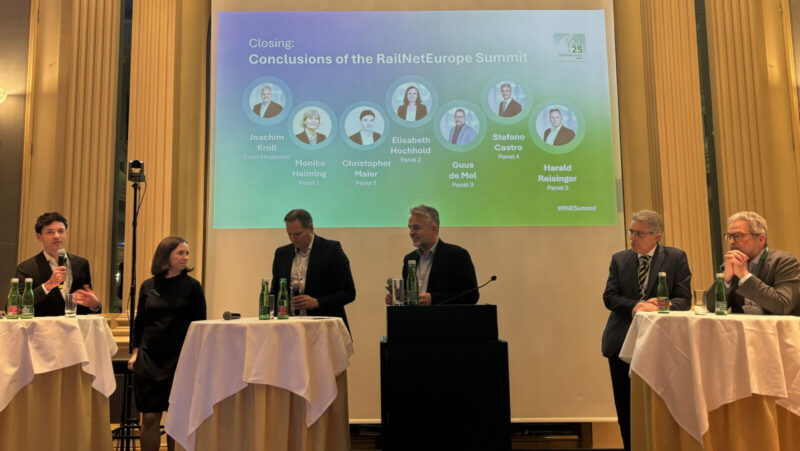
Visit the RNE Summit landing page too see the video recording, voting results and pictures!